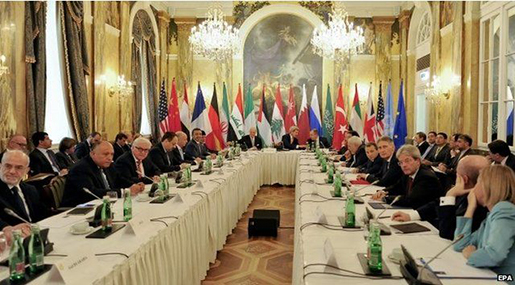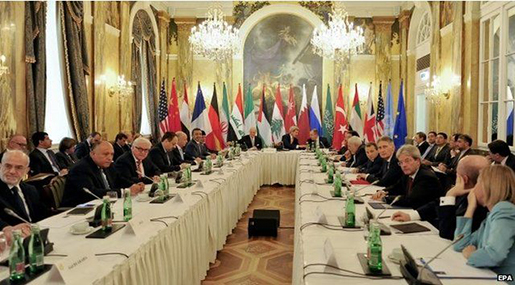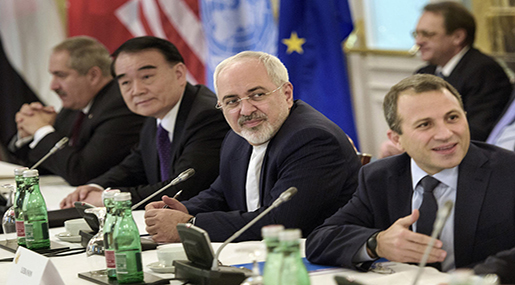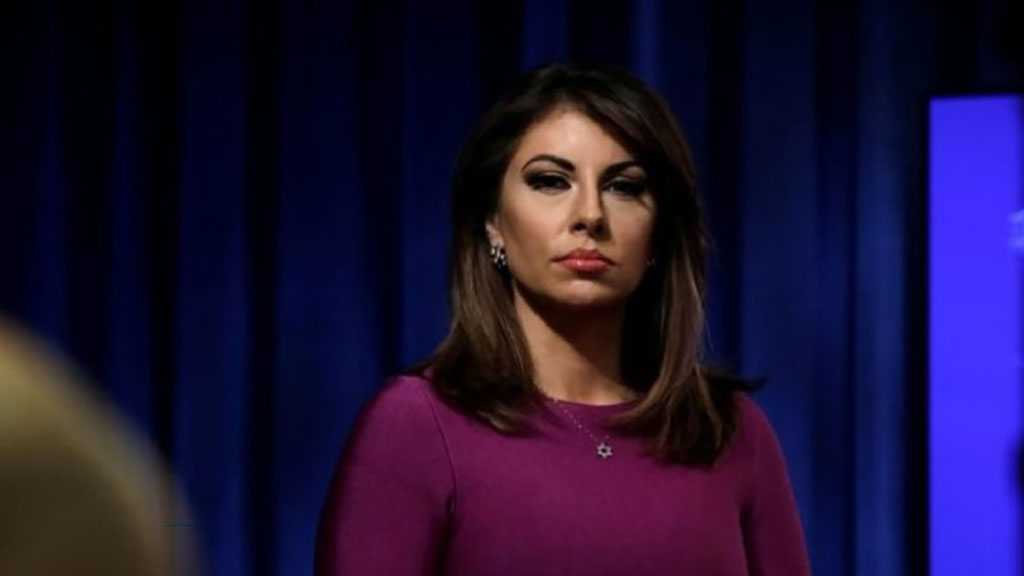The Vienna Talks: Iran Part of Regional Equation

Darko Lazar
The latest round of diplomatic talks over the conflict in Syria, attended by representatives from a total of 19 countries and international bodies, was widely received with a degree of cautious optimism.

Emerging from Vienna's luxurious Hotel Imperial, where the talks were held, EU foreign policy chief Frederica Mogherini said that the meeting was "not an easy one, but a historic one."
During a press conference following the talks, Russia's foreign minister, Sergei Lavrov, jokingly said, "We will be back."
Even British foreign secretary Philip Hammond praised the meeting, saying that this was now a "process that has some momentum."
In reality, of course, the talks were not quite so grandiose.
The nearly nine-hour meeting last Friday failed to do more than produce a joint declaration, which broadly outlines a political process aimed at ending almost five years of war in Syria.
The nine-point plan includes elections and a nationwide ceasefire. But the devil is almost certainly going to be in the details.
While the meeting may prove to be an important milestone in setting some semblance of a framework for diplomatic efforts to end the war that has killed over 200,000 people and displaced millions, the human calamity is not the reason behind these talks being convened.
The discussions in Vienna are essentially little more than an acknowledgment by the foreign drivers of the Syrian conflict of new realities on the ground.
The recently established close coordination between Moscow, Tehran and Damascus in their fight against terrorism has devastated militant groups in Syria, seriously undermining the agendas of the west and some Persian Gulf nations in that country.
The Syrian army and their allies on the ground, backed by Russian airstrikes, have launched offensive operations in both the north and the south of the country, putting the militants on the back foot. The coordinated military effort on the part of Russia, Iran and Syria may prove to be enough to eradicate Daesh in the long run. But in the short term, Moscow's decision to launch airstrikes in Syria eliminates the possibility of the US-led coalition turning its guns on the Syrian army and government, preventing the complete collapse of the state.
According to political analyst and journalist at the Moscow-based Sputnik news agency, Andrew Korybko, that's "not to say that Syria would have been defeated had it not been for Russia's decisive intervention, but that Moscow exponentially helped Damascus and came through at a very critical moment. Thus, the US and its allies are sitting down at the same table with Russia once more, but even more importantly, they've also included Iran into the equation, which had previously been sidelined."

Tehran, which has been a vocal advocate of a political solution to the Syrian conflict, is also one of Damascus's staunchest allies. And while its participation is completely logical and necessary, the Iranians have been excluded from previous peace talks at the insistence of the Americans and Saudi Arabia - most recently at the Geneva Conference in January 2014.
Inviting Iran to the Austrian capital to take part in talks over Syria's future is a highly significant shift for Washington.
Korybko thinks that "Iran will help to balance the destabilizing influence of Qatar and Saudi Arabia... it will also have its own proactive role in working with Russia to make sure that Syria's legitimate interests are respected and guaranteed."
So how much can the Vienna dialogue actually produce in the way of substance? The short answer to that is not much - at least not right away.
"In the short term, perhaps the most hopeful result to come out of the Vienna talks would be operational agreements reminiscent of the Cold War to avoid such direct Great Power conflict in Syria," says international relations and security analyst Mark Sloboda.
The Syrian conflict is indeed unfolding in the context of a new Cold War, which has its epicenter is the Middle East. The conference in Vienna only serves to reinforce this narrative, where discussions were led by disagreements between the US and Saudi Arabia on the one side, and Russia and Iran on the other.
Sloboda told me "in the end, the talks merely provide a format for an eventual resolution of the geopolitical nature of the Syrian conflict. They in no way provide for a domestic resolution - ironically illustrated by the fact that the only Syrian in attendance at Vienna 2 was one of the waiters."
Source: al-Ahed News




